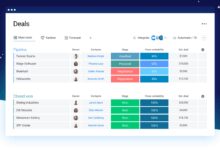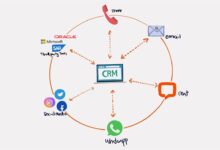Salesforce CRM Cost: 7 Shocking Truths You Must Know in 2024
Thinking about Salesforce CRM but unsure what it’ll cost? You’re not alone. The real Salesforce CRM cost isn’t just a monthly fee—it’s a mix of plans, users, add-ons, and hidden expenses. Let’s break it down in plain English.
Salesforce CRM Cost: The Real Price Breakdown

When people ask about Salesforce CRM cost, they often expect a single number. But the truth is, Salesforce pricing is complex, customizable, and highly scalable. It’s not a one-size-fits-all solution, and that’s both a strength and a challenge. The entry-level plan starts at $25 per user per month, while enterprise-level deployments can exceed $300 per user monthly. But these base prices are just the tip of the iceberg.
Entry-Level Plans: Essentials and Professional
Salesforce offers tiered pricing based on functionality. The most basic plan, Salesforce Essentials, is designed for small businesses and starts at $25/user/month. It includes core CRM features like contact management, lead tracking, and basic sales automation. While affordable, it lacks advanced reporting, workflow automation, and customization options.
- Salesforce Essentials: $25/user/month (billed annually)
- Salesforce Professional: $80/user/month
- Includes standard sales, service, and marketing automation tools
The Professional edition is more robust, offering workflow rules, email templates, and role-based access. It’s suitable for growing teams needing more control. However, even at $80, you’re still missing out on AI-powered analytics and advanced customization available in higher tiers.
Enterprise and Unlimited Editions
For mid-sized to large organizations, Salesforce Enterprise starts at $165/user/month. This plan unlocks full customization, API access, advanced security, and sophisticated reporting. It’s ideal for companies with complex sales cycles or those integrating with other enterprise systems.
- Enterprise: $165/user/month
- Unlimited: $330/user/month
- Includes 24/7 support, sandbox environments, and unlimited custom apps
The Unlimited edition is the most feature-rich, offering premium support, additional storage, and multiple sandbox environments for testing. While powerful, it’s also the most expensive, making it overkill for many businesses. According to Salesforce’s official pricing page, these plans are billed annually and require a minimum number of users.
Hidden Costs Behind Salesforce CRM Cost
The listed price per user is just the beginning. Many companies underestimate the total cost of ownership (TCO) because they don’t account for implementation, training, customization, and third-party apps. These hidden costs can easily double or triple your initial budget.
Implementation and Setup Fees
Implementing Salesforce isn’t plug-and-play. Most businesses need consultants or certified partners to configure the system, migrate data, and integrate with existing tools. Depending on complexity, implementation can cost anywhere from $10,000 to over $100,000.
- Basic setup: $10,000–$25,000
- Mid-level implementation: $25,000–$50,000
- Enterprise deployment: $50,000+
These costs vary based on data volume, number of integrations, and customization needs. For example, migrating customer data from legacy systems requires cleaning, mapping, and validation—tasks that take time and expertise. As noted by CIO.com, poor data migration is one of the top reasons for CRM project failures.
Customization and Development Costs
Salesforce is highly customizable, but that flexibility comes at a price. Building custom objects, workflows, or automations often requires developers fluent in Apex (Salesforce’s programming language) or Lightning components.
- Hourly developer rates: $100–$200/hour
- Custom app development: $15,000–$50,000+
- Ongoing maintenance: $5,000–$20,000/year
Even minor changes—like adding a new field or modifying a report—can require developer intervention. Over time, these costs accumulate, especially if your business processes evolve frequently.
“The biggest mistake companies make is focusing only on the subscription cost. The real expense is in tailoring Salesforce to fit their unique needs.” — CRM Implementation Consultant, Salesforce Partner Network
Factors That Influence Salesforce CRM Cost
Several variables affect how much you’ll pay for Salesforce. Understanding these factors helps you forecast costs more accurately and avoid budget overruns.
Number of Users and Licensing
Salesforce pricing is primarily user-based. The more users you have, the higher your monthly bill. But not all users need full licenses. Salesforce offers different license types to reduce costs:
Salesforce CRM cost – Salesforce CRM cost menjadi aspek penting yang dibahas di sini.
- Full CRM licenses (Sales, Service, Marketing Cloud): $25–$330/user/month
- Light licenses (Customer Community, Partner Community): $7–$15/user/month
- Chatter Free: $0 (limited collaboration features)
For example, customer service reps might need full Service Cloud licenses, while external partners can use a Community license at a fraction of the cost. Proper license management can save 30–50% on your total Salesforce CRM cost.
Additional Features and Add-Ons
Salesforce offers a wide range of add-ons that enhance functionality but increase cost. Popular add-ons include:
- Salesforce CPQ (Configure, Price, Quote): $75–$150/user/month
- Marketing Cloud: $400+/month (minimum commitment)
- Pardot (B2B Marketing Automation): $1,250–$4,000/month
- Field Service Lightning: $150–$300/user/month
These tools are powerful but can quickly inflate your budget. For instance, Pardot starts at $1,250/month for up to 10,000 contacts, making it expensive for small marketing teams. Always evaluate whether an add-on delivers ROI before purchasing.
Salesforce CRM Cost vs. Competitors
How does Salesforce stack up against other CRM platforms? While Salesforce is the market leader, it’s also one of the most expensive. Comparing it to alternatives helps determine if the premium is justified.
HubSpot CRM: Free vs. Salesforce Essentials
HubSpot offers a free CRM with robust features—contact management, email tracking, and deal pipelines. Its free plan is a strong alternative to Salesforce Essentials for startups and small teams.
- HubSpot Free CRM: $0
- HubSpot Sales Hub Starter: $20/month
- Includes email sequences, meeting scheduling, and live chat
While HubSpot is more affordable, it lacks the depth of customization and scalability that Salesforce offers. For businesses planning to grow rapidly, Salesforce may still be the better long-term investment despite the higher Salesforce CRM cost.
Microsoft Dynamics 365 vs. Salesforce
Microsoft Dynamics 365 is a direct competitor, especially for enterprises already using Microsoft 365. Its pricing is comparable:
- Dynamics 365 Sales Professional: $65/user/month
- Dynamics 365 Sales Enterprise: $150/user/month
- Seamless integration with Outlook, Teams, and Office apps
Dynamics 365 is often easier to adopt for Microsoft-centric organizations. However, Salesforce leads in AI (Einstein Analytics), app ecosystem (AppExchange), and third-party integrations. According to Gartner Peer Insights, Salesforce consistently ranks higher in user satisfaction and functionality.
“If you need deep CRM functionality and ecosystem support, Salesforce is worth the cost. If you want simplicity and integration with Office, consider Dynamics.” — IT Director, Mid-Sized Manufacturing Firm
How to Reduce Salesforce CRM Cost
You don’t have to pay full price for Salesforce. With smart planning, you can significantly reduce your total cost while still getting the features you need.
Negotiate with Salesforce or a Partner
Salesforce rarely gives discounts publicly, but they’re often available. If you’re purchasing multiple licenses or committing to a multi-year contract, you can negotiate lower rates—especially through a Salesforce partner.
- Multi-year contracts: 10–20% discount
- Bundled products: Lower per-unit cost
- Non-profit and education discounts: Up to 50% off
Partners like Accenture, Deloitte, or smaller regional firms often have volume discounts and can pass savings to clients. Always ask about promotions, seasonal offers, or special programs.
Optimize User Licenses and Roles
Many companies over-license users. For example, giving every employee a full Sales Cloud license is unnecessary. Use role-based access and lighter licenses where possible.
- Use Chatter Free for internal communication
- Assign Customer Community licenses to clients
- Limit admin access to reduce security risks
Regularly audit user roles and deactivate inactive accounts. This not only cuts costs but improves security and compliance.
Salesforce CRM cost – Salesforce CRM cost menjadi aspek penting yang dibahas di sini.
Salesforce Pricing Models: Subscription vs. Custom Quotes
Salesforce offers two main pricing models: standard subscription (for small to mid-sized businesses) and custom quotes (for enterprises). Understanding the difference helps you choose the right path.
Standard Subscription Plans
Available directly from Salesforce’s website, these plans are transparent and easy to purchase. They’re ideal for businesses with straightforward needs and under 100 users.
- No negotiation required
- Immediate access to core features
- Self-service onboarding tools
However, standard plans lack flexibility. You can’t mix and match features from different editions, and add-ons are priced separately. For growing companies, this model may become limiting.
Enterprise Agreements and Custom Quotes
Larger organizations typically receive custom quotes based on their specific requirements. These agreements include bundled products, discounted rates, and dedicated support.
- Volume-based pricing
- Flexible licensing models
- Includes implementation credits or training vouchers
While more complex, custom quotes often provide better value. They also allow for phased rollouts and pilot programs. According to Salesforce’s official blog, enterprise deals now emphasize outcomes over features, aligning cost with business value.
Real-World Examples of Salesforce CRM Cost
Let’s look at actual scenarios to understand how Salesforce CRM cost plays out in different business sizes.
Startup with 10 Users
A tech startup with 10 sales reps might choose Salesforce Essentials at $25/user/month. Annual cost: $3,000. Add $10,000 for implementation and $2,000 for training. Total first-year cost: $15,000.
- Monthly: $250
- Implementation: $10,000
- Training: $2,000
- Total Year 1: $15,000
This is manageable for a funded startup. As they grow, they may upgrade to Professional or Enterprise editions.
Mid-Sized Company with 100 Users
A 100-person company using Salesforce Enterprise at $165/user/month pays $198,000 annually. Add $50,000 for implementation, $15,000 for customization, and $10,000 for third-party apps. Total first-year cost: $273,000.
- Subscription: $198,000/year
- Implementation: $50,000
- Customization: $15,000
- Apps: $10,000
- Total: $273,000
While significant, this investment can yield high ROI through improved sales efficiency and customer retention.
Future Trends Affecting Salesforce CRM Cost
The CRM landscape is evolving. New technologies and business models are shaping how Salesforce prices its products and how companies consume them.
AI and Einstein Analytics Integration
Salesforce is heavily investing in AI through Einstein Analytics. Features like predictive lead scoring, automated data entry, and sentiment analysis are becoming standard in higher editions.
- Einstein Lead Scoring: Included in Enterprise and above
- Einstein Activity Capture: $50/user/month (add-on)
- AI-driven insights require more data processing, potentially increasing backend costs
As AI becomes more embedded, expect Salesforce to bundle these features or charge a premium. Businesses will need to weigh the value of automation against the rising Salesforce CRM cost.
Salesforce CRM cost – Salesforce CRM cost menjadi aspek penting yang dibahas di sini.
Subscription Fatigue and Value-Based Pricing
Companies are experiencing subscription fatigue—paying for too many SaaS tools. In response, Salesforce is shifting toward value-based pricing models, where cost is tied to outcomes like revenue growth or customer satisfaction.
- Pilot programs with success-based pricing
- Usage-based billing for certain cloud services
- Focus on ROI rather than feature count
This trend could make Salesforce more accessible to mid-market companies if they can demonstrate clear business impact.
What is the starting price for Salesforce CRM?
The starting price for Salesforce CRM is $25 per user per month with the Salesforce Essentials plan, billed annually. This plan is designed for small businesses and includes basic CRM functionality like contact management, lead tracking, and sales pipeline visibility.
Are there hidden costs with Salesforce?
Yes, common hidden costs include implementation fees ($10,000–$100,000+), customization by developers ($100–$200/hour), training, third-party app subscriptions, and data migration. These can double the total cost of ownership beyond the base subscription.
Can I reduce my Salesforce CRM cost?
Yes, you can reduce costs by negotiating multi-year contracts, optimizing user licenses, using lighter license types for non-core users, leveraging partner discounts, and auditing usage regularly. Proper planning and license management can save 30–50% on total expenses.
Is Salesforce worth the cost compared to other CRMs?
Salesforce is worth the cost for businesses that need scalability, deep customization, AI capabilities, and a vast ecosystem. For simpler needs, alternatives like HubSpot or Zoho CRM may offer better value. The decision depends on your growth plans and technical requirements.
Does Salesforce offer discounts for non-profits?
Yes, Salesforce offers up to 50% off for non-profit organizations through its Power of Us program. Eligible organizations can also receive free licenses and grants for implementation support, significantly reducing the overall Salesforce CRM cost.
Understanding the true Salesforce CRM cost goes far beyond the monthly subscription fee. It includes licensing, implementation, customization, add-ons, and ongoing maintenance. While Salesforce is one of the most expensive CRM platforms, its power, flexibility, and ecosystem make it a top choice for growing and enterprise-level businesses. By planning carefully, negotiating wisely, and optimizing usage, you can manage costs effectively and maximize ROI. Whether you’re a startup or a global enterprise, knowing the full picture helps you make smarter decisions about your CRM investment.
Salesforce CRM cost – Salesforce CRM cost menjadi aspek penting yang dibahas di sini.
Further Reading:





